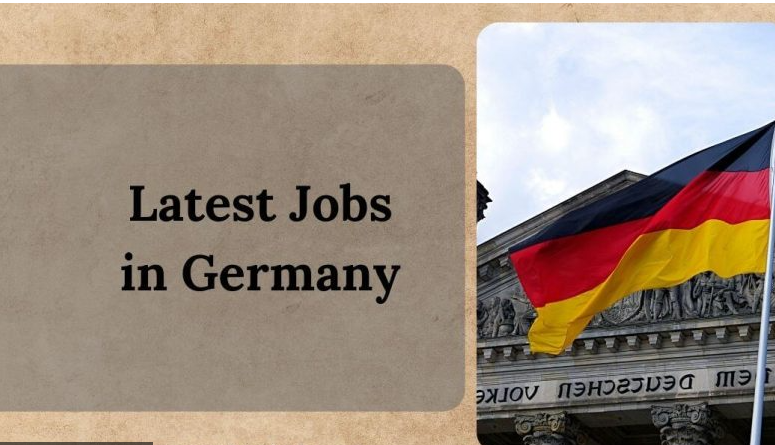
Outline of the Article
H1: Latest Jobs in Germany 2025 – Apply Now
- H2: Introduction to Germany’s Job Market in 2025
- H3: Why Germany Is a Top Destination for Job Seekers
- H3: Economic Trends Shaping the Job Market
H2: Key Industries with Job Openings in 2025
- H3: Technology and IT
- H4: Growing Demand for AI and Machine Learning Experts
- H4: Cybersecurity Roles in High Demand
- H3: Healthcare and Life Sciences
- H4: Nursing and Medical Professionals
- H4: Research and Biotechnology Opportunities
- H3: Renewable Energy Sector
- H4: Engineering and Sustainable Energy Experts
- H3: Automotive and Mobility Innovations
H2: Eligibility Requirements for Jobs in Germany
- H3: Qualifications and Certifications
- H3: Work Permit and Visa Information
H2: How to Apply for Jobs in Germany
- H3: Crafting a Winning CV for German Employers
- H3: Navigating Job Portals and Networking
H2: Benefits of Working in Germany
- H3: Competitive Salaries
- H3: Work-Life Balance and Social Benefits
H2: Challenges to Expect When Job Hunting in Germany
- H3: Language Barriers
- H3: Adapting to Workplace Culture
H2: Tips for Succeeding in the German Job Market
- H3: Learning the German Language
- H3: Building a Professional Network
H2: Conclusion
H2: FAQs About Jobs in Germany 2025
- What are the top-paying jobs in Germany in 2025?
- How can I secure a work visa for Germany?
- Do I need to speak German to work in Germany?
- Are remote jobs popular in Germany?
- What resources can help me find a job in Germany?
Latest Jobs in Germany 2025 – Apply Now
Latest Jobs in Germany 2025 – Apply Now. Germany, the powerhouse of Europe, continues to be a magnet for professionals worldwide. With its booming economy and innovative industries, the country offers a treasure trove of career opportunities for 2025. Whether you’re a seasoned professional or a fresh graduate, Germany’s thriving job market is calling your name.
Introduction to Germany’s Job Market in 2025
Why Germany Is a Top Destination for Job Seekers
Germany boasts one of the most stable economies in the world, consistently ranking as a hub for innovation and industry. It’s not just about the attractive salaries; the country’s robust infrastructure, high standard of living, and inclusive work environment make it a dream destination for global talent.
Economic Trends Shaping the Job Market
In 2025, Germany is heavily investing in technology, healthcare, and green energy. These investments, coupled with an aging population and labor shortages, have created a demand for skilled professionals across various sectors.
Key Industries with Job Openings in 2025
Technology and IT
The tech boom in Germany shows no signs of slowing down.
- Growing Demand for AI and Machine Learning Experts
Companies are on the lookout for AI specialists to innovate and optimize their operations. - Cybersecurity Roles in High Demand
With cyber threats on the rise, skilled cybersecurity professionals are indispensable.
Healthcare and Life Sciences
Germany’s healthcare system is one of the best globally.
- Nursing and Medical Professionals
The aging population has spiked the demand for nurses and healthcare workers. - Research and Biotechnology Opportunities
Innovative biotech companies are scouting for researchers and lab technicians.
Renewable Energy Sector
As a global leader in sustainability, Germany is ramping up its renewable energy initiatives.
- Engineering and Sustainable Energy Experts
Solar, wind, and hydrogen projects are creating numerous engineering roles.
Automotive and Mobility Innovations
With a focus on electric and autonomous vehicles, the automotive sector offers exciting opportunities for engineers and software developers.
Eligibility Requirements for Jobs in Germany
Qualifications and Certifications
Your qualifications should align with German standards. For specialized roles, certifications from recognized institutions are often a must.
Work Permit and Visa Information
Non-EU citizens require a work visa. The Blue Card program simplifies this for highly skilled professionals.
How to Apply for Jobs in Germany
Crafting a Winning CV for German Employers
Tailor your CV to emphasize relevant skills. Use a clear format and avoid exaggerations – German employers value accuracy.
Navigating Job Portals and Networking
Websites like LinkedIn, Indeed, and Germany-specific portals such as StepStone are excellent starting points. Networking at professional events can also open doors.
Benefits of Working in Germany
Competitive Salaries
Professionals in Germany enjoy some of the highest salaries in Europe, especially in sectors like IT and engineering.
Work-Life Balance and Social Benefits
From flexible hours to comprehensive healthcare, Germany ensures employees have a balanced lifestyle.
Challenges to Expect When Job Hunting in Germany
Language Barriers
While many jobs are English-friendly, knowing German can significantly boost your prospects.
Adapting to Workplace Culture
German workplaces value punctuality, precision, and professionalism – traits you’ll need to embrace.
Tips for Succeeding in the German Job Market
Learning the German Language
Enrolling in a language course can set you apart from other candidates.
Building a Professional Network
Join industry-specific groups and attend conferences to connect with potential employers.
Conclusion
Germany’s job market in 2025 is brimming with opportunities for skilled professionals. With the right preparation, a proactive approach, and a bit of persistence, you can land a rewarding career in this dynamic country. So, don’t wait – start your journey today!
FAQs About Jobs in Germany 2025
What are the top-paying jobs in Germany in 2025?
Roles in IT, engineering, and healthcare tend to top the salary charts.
How can I secure a work visa for Germany?
Applying through the Blue Card program or employer sponsorship is the most common route.
Do I need to speak German to work in Germany?
Not always, but it can give you a significant edge in the job market.
Are remote jobs popular in Germany?
Yes, especially in IT and creative industries.
What resources can help me find a job in Germany?
Job portals like StepStone, LinkedIn, and government websites are great places to start.





